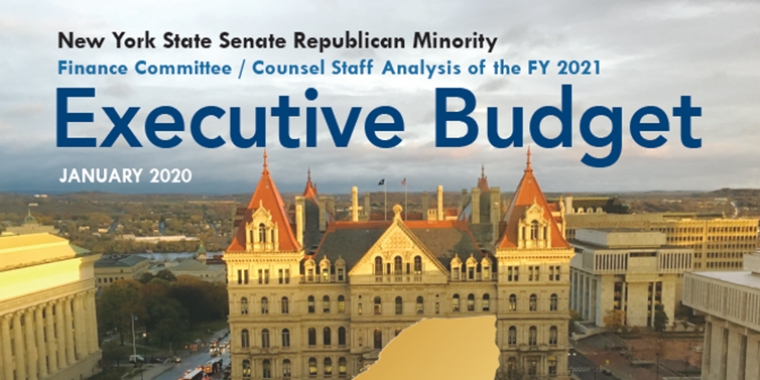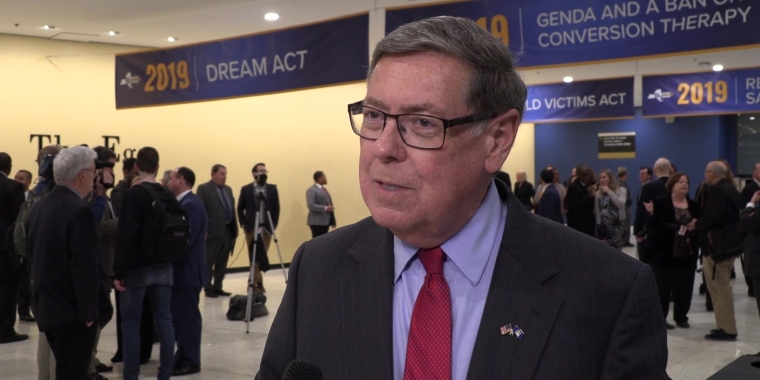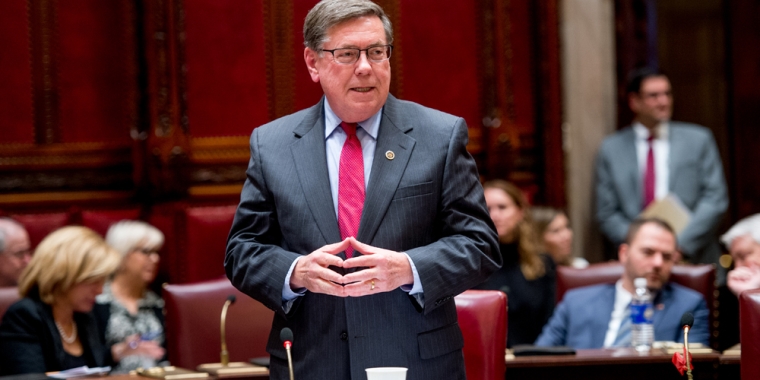
Job Creation Is Job One
James L. Seward
January 29, 2010
-
ISSUE:
- Economic Development
- Unemployment

Statewide unemployment in New York recently reached nine percent. Last year, the state lost 269,000 jobs and the governor is already projecting that another 40,000 will be lost in 2010. It is clear that we need to reverse this trend. That’s why I am proposing a major new jobs initiative designed to jump start our economy and get people working.
The 2010 Job Creation & Retention Plan is a comprehensive recovery blueprint which would add no spending to the state budget and would pay for itself through increased jobs and revenue from economic growth.
The plan's centerpiece is a job creation tax credit which would reward businesses with a three-year tax credit, averaging between $2,500 and $5,000 for every new job created. The tax credit would be recurring for three years and would only be provided for new jobs that expand total payroll, equal to the amount of tax withholding for each new job.
For example, a new job paying $30,000 would provide an employer with a tax credit of about $1,150. A job paying $50,000 would provide a $2,500 tax credit. That credit could grow by as much as an additional $3,000 per job if new hires are taken from the ranks of the unemployed who are collecting unemployment insurance from the state.
The governor recently presented his Excelsior Program which also includes a tax credit, but there is a catch. His credit is only for high tech/biotech companies that create 50 or more jobs. A Main Street shop that expands and adds two salesmen is out, and the venture capitalist who wants to open a ten man operation need not apply. In fact, the governor’s budget division estimates that fewer than 50 companies might benefit each year, a fairly exclusive credit to say the least. The senate Republican proposal, on the other hand, is open to all businesses that create new jobs, no matter the number. That means about 400,000 current businesses would qualify and new start-ups of all sizes are welcome.
The senate Republican jobs initiative would eliminate taxes for small businesses and manufacturers that pay the state’s corporate franchise tax and roll back the income tax surcharge placed on them last year by Democrats in the budget. It also places a moratorium on new taxes, fees and regulations that are killing private sector job-creation efforts in the state.
Next, the plan would enact a state prohibition on the bureaucratic red tape which makes it so difficult for business to expand. Additionally, a new Berger-style commission would be created to identify and make binding recommendations on eliminating the most costly and counter-productive regulations which are currently hindering business growth.
Finally, the plan also continues my call for a constitutional cap on state spending. We need to improve New York’s overall business climate and a cap on spending would help prove that the state is ready to break the never ending cycle of tax and fee increases that stifle job creation and new economic investment.
The senate jobs plan already has the endorsement of top business groups.
"Private sector job creation needs to be New York’s highest priority. This plan addresses this vital need by removing barriers to job growth and giving our citizens hope and opportunity,” said Kenneth Adams, president and CEO of The Business Council of New York State, Inc.
"Lowering New York's second worst in the nation business tax climate and cost of doing business is really what small business needs to survive and grow, and that's exactly what this job creation plan will do," said Mike Elmendorf, New York State director of the National Federation of Independent Business (NFIB), New York's leading small business advocacy association.
This plan is straightforward and can be enacted in short order. By taking these steps now we can rally our state, encourage business growth and most importantly, put a paycheck in more people’s hands.
Share this Article or Press Release
Newsroom
Go to NewsroomSeward Meets with Veterans
February 25, 2020

Analysis of 2020-21 Governor's Budget Proposal
January 29, 2020

Governor's Budget Plan Falls Short
January 21, 2020

Statement from Senator Seward
January 20, 2020
